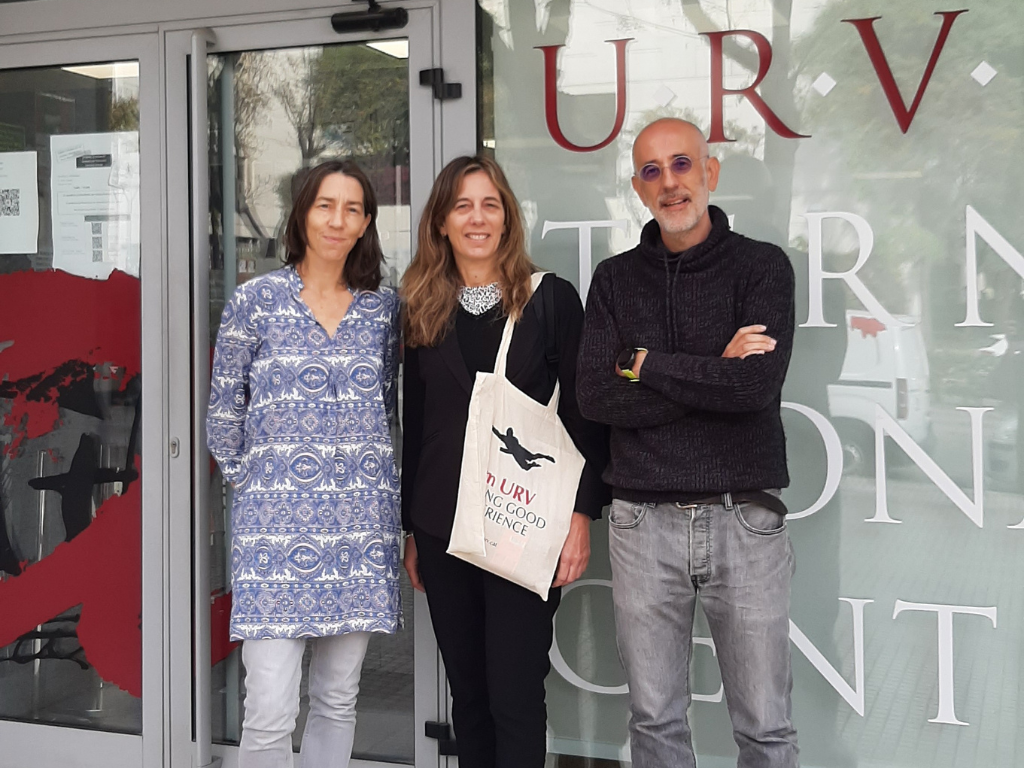07/11/2023
The number of staff mobility placements at international universities is rising
Mobility programmes enable university staff to participate in teaching or professional development activities abroad

Mobility programmes enable university staff to participate in teaching or professional development activities abroad
Mobility programmes allow not only students but also academic and technical staff, management and administration and services staff to spend time at a university inside or outside the European Union with financial support to help cover the costs involved. URV staff have several options for international mobility, and depending on their professional needs, they can opt for one type of funding or another.
These grants are managed by the URV’s International Center through competitive calls for applications that are processed during the academic year. During the 2012-22 academic year a total of 41 members of academic staff and Technical, Management and Administration and Services Personnel (PTGAS) took part in mobility programmes, while in 2022-23 this number increased to 49. Of the 41 staff members who carried out mobilities in the academic year 2021-22, 30 were PDI and the rest PTGAS. In the academic year 2022-23, 37 mobilities were carried out by PDI members while the remaining 12 were PTGAS.
The Erasmus+ KA131 and 171 and Aurora staff calls for training and teaching, the I-Networks grants for activities promoted by the university networks of which the URV is a member, as well as the DRAC grants for mobility between members of the Xarxa Vives d’Universitats are currently open. All of these grants are available to members of the university community (PDI and PTGAS) who wish to carry out short-term stays for teaching, research or training purposes.
In the new 2023-24 Erasmus+ mobility call, priority is given to staff members who participate in a BIP (Blended Intensive Programme) course, as well as to those who are involved in the organisation of a BIP. Applicants who have participated in the SUCTI: Internationalisation for all course will also be prioritised.
The URV receives its first visit through the INU Researcher Mobility Program
The following is an example of the mobilities that can be funded through the URV I-Networks programme.
Carlos Pozo, a researcher from the Department of Chemical Engineering of the URV, is currently hosting Gabriela Corsano, from Universidad Nacional del Litoral in Argentina, for a whole month. This collaboration has been made possible through the Researcher Mobility Award of the International Network of Universities (INU). The purpose of this programme is to develop joint research initiatives between two INU member universities, with a view to further expand multilateral research collaborations with other member universities.
INU is committed to establishing multilateral research collaborations across INU network of universities. To achieve this, the Researcher Mobility Program provides the opportunity for PhD students and active researchers within the INU network to engage in research at another INU member university. The INU funds up to a maximum of $2,000 towards travel and accommodation costs. The deadline to apply for the 2024 edition is yet to be announced. All URV PhD students and active researchers can apply to this competitive call.
In this case, the roots of this scientific partnership can be traced back to 2011, and now they focus on developing decision support tools aimed at planning more sustainable processes. These processes involve multiple stakeholders with conflicting interests and objectives. To optimize complex supply-chains Dr. Carlos Pozo and Dra. Gabriela Corsano will take advantage of their respective expertise and the synergistic effect of their collaboration. The strategy involves the implementation of multi-objective optimization techniques to generate a useful and valuable tool, both for academia and industry. This tool will have the capacity to evaluate economic, environmental and social impacts within a value chain, and how these affect its different members. The tool will be applied to the supply-chain of agroforest products in Argentina, a strategic sector with significant economic and environmental implications.
This is the first time that the URV receives a visit through this programme. This collaboration underscores the vital role played by organizations like the INU in fostering partnerships that transcend borders and deliver innovative solutions to real-world challenges
